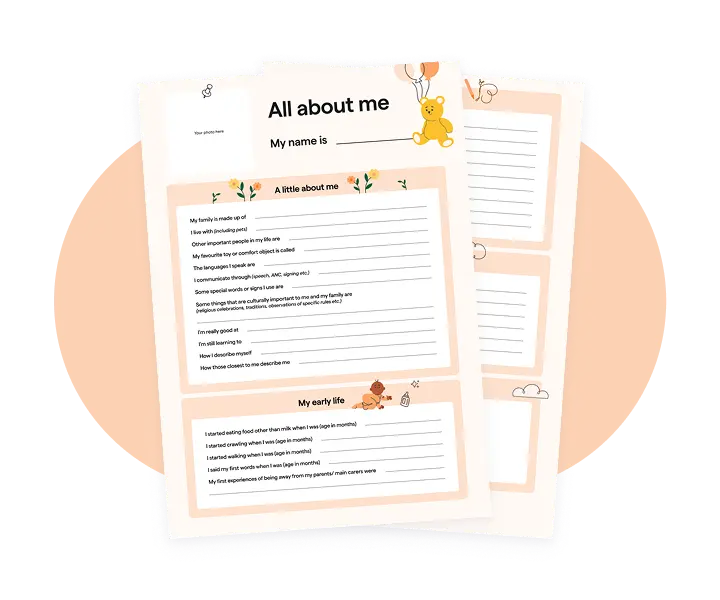settings
children
With Famly since
Why do we have to promote British values in the Early Years?
In the EYFS framework, under ‘Concerns about children’s safety and welfare’, it states that, “Providers must also take into account the government’s statutory guidance ‘Working Together to Safeguard Children’ and ‘Prevent duty guidance for England and Wales’.” British values are part of the Prevent Duty Guidance, the aim of which is to stop people from becoming terrorists or supporting terrorism.
What does the Prevent Duty Guidance say about British Values in Early Years settings?
Under ‘Building resilience through the curriculum (schools and further education)’, the Prevent Duty Guidance states that:
- Schools and further education settings support learners to have the knowledge, skills and values that will prepare them to be citizens in modern Britain. As part of this, in England, they are required to actively promote the fundamental British values of:
- Democracy
- The rule of law
- Individual liberty
- Mutual respect and tolerance of those with different faiths and beliefs.
And, that:
- For Early Years, the foundation stage statutory framework supports providers to do this in an age-appropriate way, through ensuring children learn right from wrong, mix and share with other children, and value other views.
What do Ofsted say about British values?
Previous versions of Ofsted’s Education Inspection Framework or EIF have noted that inspectors will make a judgment on how settings are “developing learners’ understanding of fundamental British values”, as part of the Personal Development category.
Ofsted's newest Education Inspection Framework (in force from November 2025) no longer mentions British values, as Safeguarding is now a separate area of inspection. The Early Years Toolkit, to be used from November 2025, notes that settings must have regard for Prevent Duty in order to receive a judgement of ‘met’ for Safeguarding. Specifically, “Leaders and practitioners understand and follow the requirements for reporting, referrals, record-keeping, and the ‘Prevent’ duty.”
The big ideas

How do you promote British values in the Early Years?
Let’s look at each of the British Values individually.
1. Democracy in the Early Years
Democracy means ‘rule by the people’, where we make decisions by consensus or majority. Children should be given the opportunity to share their opinions and feelings and collaborate to make decisions together.
How can I promote democracy in my Early Years setting?
- Offer opportunities for group decision-making, such as voting on a new resource, where to go on an outing, or how to spend some money.
- Support projects where children can work together to achieve a goal and share responsibility. This could be as simple as collaboratively building a tower or den, creating a piece of art to display, or growing plants, where everyone takes a turn to water them.
2. The rule of law in the Early Years
The rule of law is about understanding and following the rules that govern us and keep us safe. Children should be supported to help create and uphold the rules of their setting
How can I promote the rule of law in my Early Years setting?
- Support children to come up with some shared guidelines for their room - this might be things like speaking kindly to other people, treating resources respectfully, and helping each other to stay safe.
- Enable children to explore the natural consequences of their actions. We’re not taking crime and punishment, but ensuring children understand that what we do and say has an effect on others.
3. Individual liberty
Individual liberty is about being who you want to be and making your own choices. Children should be supported to develop self-confidence, make decisions, and learn about how they belong to their communities.
How can I promote individual liberty in my Early Years setting?
- Ensure you have adequate time in the day for children to lead their own play, whether it’s accessing continuous provision, deciding whether to play outside or inside, or simply choosing which book they’d like to sit and read.
- Make space for discussion about where children can make choices and where they have to follow rules. For example, “You want to ride the trike, but Grace is already on it,” or “You’d like to go to the soft play room, but you need an adult to go with you.”
4. Mutual respect and tolerance
Mutual respect and tolerance should be embedded in your practice anyway, but making it overt to the children is key. Children must know they and their peers belong and are welcome, and that their families, faiths, cultures, and communities matter.
How can I promote mutual respect and tolerance in my Early Years setting?
- Don’t shy away from difference. Encourage children to talk about the things they like, what they do at home, the foods they eat, and what they look like.
- Consider what barriers you may have to learning and work to remove these. For example, do you support children’s home languages as well as English? Do you celebrate festivals of many faiths and cultures?
- Ensure your setting and resources reflect the diversity of your cohort and their families, and introduce children to the lives of others, too.
Top tips from Alphabet House
Get top tips from a setting just like yours. Hear from Alphabet House on why and how they use Famly - and why they’ve never looked back.
Read their story








.webp)

